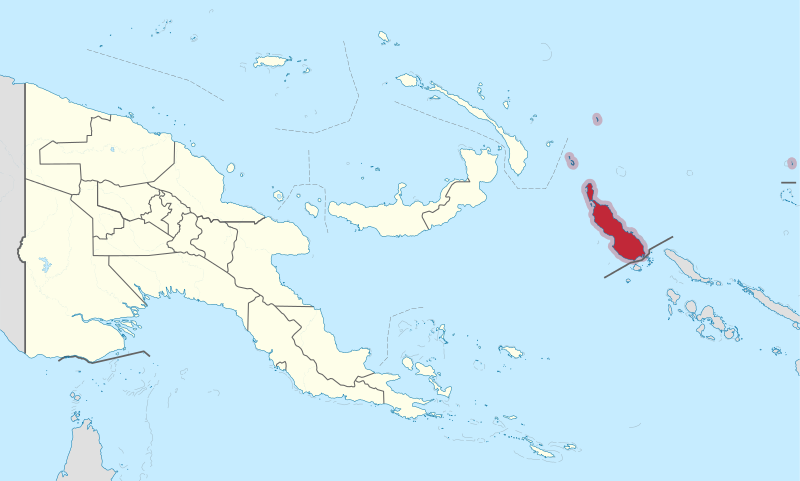Oceania is a region of many cultures, nations, languages and not so much cover on this platform. This is partly because IFLRY doesn’t have any members organisations there but also because the region consists of only small countries, with the exception of Australia. Most countries in Oceania are populated by less than a million people and by land area, they’re also small. But since they are independent countries, they still have a voice in e.g. the UN. Back in 2019, I wrote about possible new countries and name dropped Bougainville, which was about to have a referendum on independence. Not long after we had the results: almost 98% of the voters were in favour of independence. The thing is, however, that the referendum was non-binding ,so in theory the government of Papua New Guinea doesn’t have to take it into any account – in practise, it’s a different thing.
So, a quick presentation on the region I’m about to cover: Papua New Guinea (PNG) has a population of roughly 6.7 million and out of that a little under 250 000 are from Bougainville. Most of Papua New Guinea is on the island of New Guinea, which has the largest linguistic diversity of anywhere on Earth: over 800 out of world’s 7100 languages are spoken on this one island. As a nation, PNG is the most heterogenous in the world: the citizens really don’t have anything in common with each other.
Bougainville is a region rich in gold and when the mines came, they brought workers with them from other regions of Papua New Guinea. When the mining operations didn’t generate jobs for the locals, people were upset when they had to relocate and to top it all of, the profits from the mines didn’t stay in Bougainville. In 1988, tensions escalated into a civil war between the PNG government and the Bougainville Revolutionary Army. The war raged on for a decade and was finally over in 1998. It’s estimated that 15 000 people lost their lives and 40 000 were displaced. As part of the peace negotiations, Bougainville was given a special status as an autonomous region and a local parliament was founded in 2001. And then of course the referendum was held.
And here we are today: the people of the island have voted for independence with an overwhelming majority, and Bougainville has commenced negotiations with the PNG government. The plan to set the deadline for an agreement for 2027 was announced on 7 July by the PNG Prime Minister James Marape and the President of the autonomous region Ishmael Toroama.
For now, it’s hard to envision what the coming independent state of Bougainville would look like. And would this start a chain reaction of other secessionist movements to seek independence and thus break apart Papua New Guinea as a whole? It’s too early to say for now. That’s why the deadline was set so far in the future; the PNG government wants to make sure that the state stays intact even without Bougainville.
Should Bougainville become independent, it will have to start diplomatic talks with other countries in order to become a fully-fledged country and then e.g. apply for membership in the UN. This will bring about a pressing question regarding China: which one of them will Bougainville recognise as the legitimate China? This is something that Beijing and Taipei might have already started to fight about. A general from Bougainville told 60 Minutes Australia that he is personally very open to Beijing mainly because the Mainland is bigger and has more money. An emerging country in a relatively poor region is going to have to rely on international loans, and let’s just say that Beijing is probably happy to add a new victim, I mean partner, to its debt-trap diplomacy, I mean Belt and Road Initiative.
Another key player, at least at first, will of course be Australia. But it doesn’t really have a good track record when it comes to interacting with small island nations in the Pacific: just look at Nauru, East Timor and Papua New Guinea itself. This is why I would personally want to see the EU and the USA to take the initiative. If Bougainville becomes independent in 2027, we should offer it any help they need so that the country is able to grow on its own terms as a free, liberal democracy where society and the economy are open. Instead of debt traps in the form of flashy highways, an independent Bougainville would need schools, hospitals and clean water management. And I’m not saying that the EU and the USA wouldn’t possibly be interested in a gold mine in Bougainville but the terms regarding e.g. future mining operations must be fair. In a liberal democracy, citizens can demonstrate and actively improve things if their governments don’t hold their end of the deal. It’s in everyone’s interest that if Bougainville becomes independent, it is for real independent.
Oceania will see these kinds of debated in the future: next year, there’s going to be a referendum on the independence of New Caledonia, and a special collectivity of France and Paris has already promised to honour the results of the referendum should New Caledonia choose independence.

